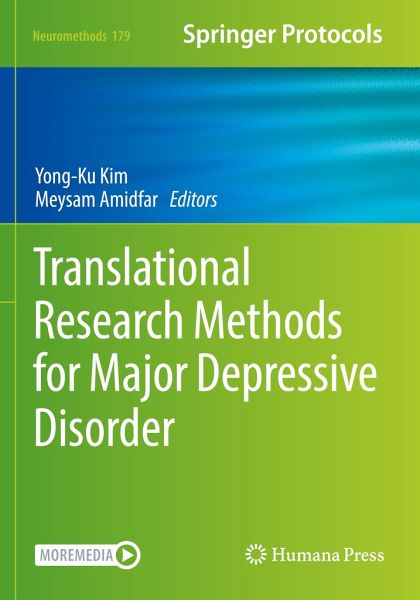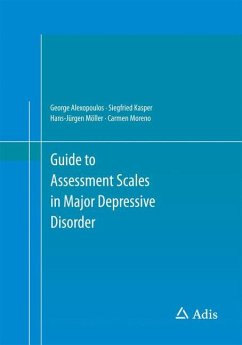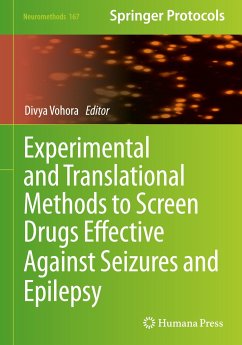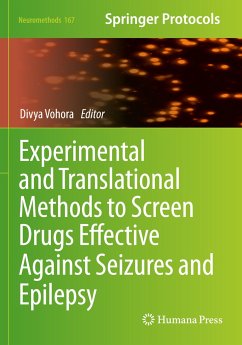
Translational Research Methods for Major Depressive Disorder
Versandkostenfrei!
Versandfertig in 6-10 Tagen
151,99 €
inkl. MwSt.

PAYBACK Punkte
76 °P sammeln!
This volume explores the latest techniques used to study brain function and pathophysiology of major depressive disorder (MDD), and includes suggestions of new therapeutic approaches for the treatment of MDD. The chapters into this book are organized into five parts. Part One discusses advanced approaches to studying well-established pathophysiological mechanisms. Part Two details behavioral research methods for MDD. Part Three looks at the cellular and molecular research methods for major depression, and Part Four describes the latest developments in non-invasive neuroimaging. Part Five focus...
This volume explores the latest techniques used to study brain function and pathophysiology of major depressive disorder (MDD), and includes suggestions of new therapeutic approaches for the treatment of MDD. The chapters into this book are organized into five parts. Part One discusses advanced approaches to studying well-established pathophysiological mechanisms. Part Two details behavioral research methods for MDD. Part Three looks at the cellular and molecular research methods for major depression, and Part Four describes the latest developments in non-invasive neuroimaging. Part Five focuses on the pharmacological and non-pharmacological interactions, including antidepressant agents and their properties, such as sexual side effects and neuroimaging biomarkers. In the Neuromethods series style, chapters include the kind of detail and key advice from the specialists needed to get successful results in your laboratory.
Cutting-edge and comprehensive, TranslationalResearch Methods for Major Depressive Disorders is a valuable resource for researchers and scientists interested in learning more about this important and developing field.
Cutting-edge and comprehensive, TranslationalResearch Methods for Major Depressive Disorders is a valuable resource for researchers and scientists interested in learning more about this important and developing field.












